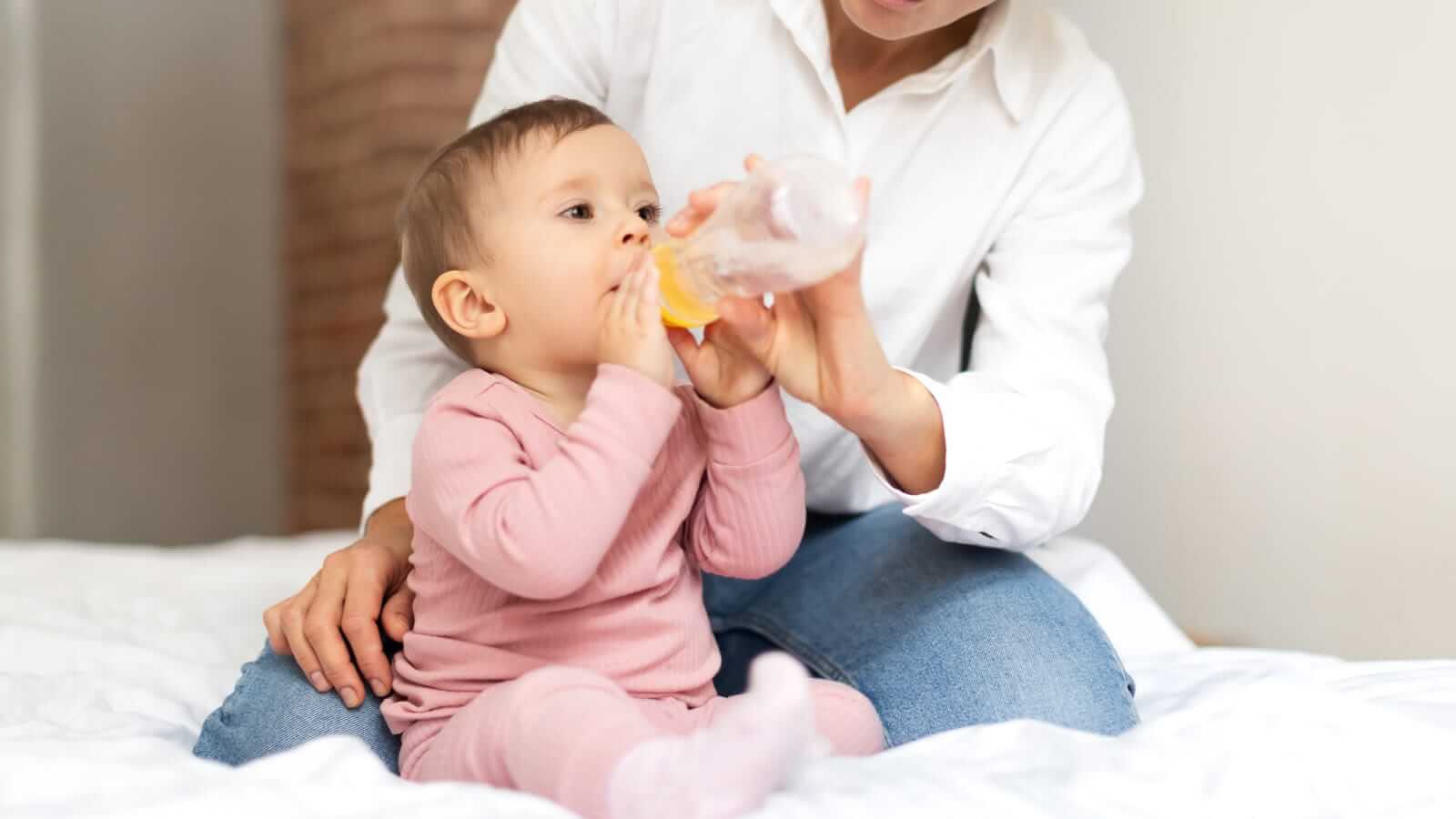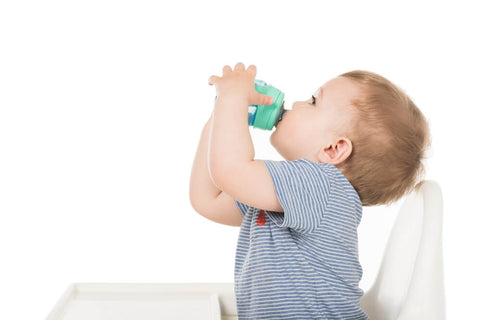How Much Fluid Does Your Infant Really Need? Understanding Hydration for Babies

As a new parent, you're likely filled with questions about your infant's needs, especially when it comes to hydration. How much fluid does your baby require? When is it appropriate to introduce water? How do you ensure your baby stays hydrated, especially during warm weather? While there's abundant information on transitioning to solids, the topic of infant hydration often gets overlooked. Let's delve into what you need to know to keep your little one well-hydrated and healthy.
When Can Babies Drink Water?
Similar to adults and older children, babies require proper hydration. Newborns typically receive all necessary fluids from breast milk or formula, both of which provide essential nutrients and hydration. Breast milk, comprising approximately 88% water, is sufficient for meeting your baby's hydration needs until the introduction of solid foods.
For formula-fed infants, it's crucial to follow the package instructions precisely to ensure the correct ratio of formula to water. Diluting formula excessively with water can lead to inadequate nutrient intake and potential weight loss in your baby.
Introducing water to your baby is typically recommended when you start introducing solid foods. Offering small amounts of water alongside solids aids in digestion and can help prevent constipation.
Why Is Water Not Suitable For Babies Younger Than 6 Months?
Babies younger than six months obtain all necessary fluids from breast milk or formula. Extra water is unnecessary, even in hot weather. Your baby will signal if they require additional feeds, and regular diaper changes with pale yellow urine indicate adequate hydration.
Introducing water to young babies can lead to various issues, including prolonged hospital stays, weight loss due to reduced appetite, increased risk of jaundice, and potentially serious conditions like water intoxication. It's essential to consult your healthcare provider if you have any concerns.
How Much Fluid Does An Infant Need?
- Under 6 Months: Breast milk or formula suffices for your baby's fluid intake. Avoid giving additional water unless advised by your doctor, as individual baby needs vary.
- 4 - 6 Months: As you introduce solids, your baby's primary fluid intake remains breast milk or formula. Offering small sips of water alongside solids can aid in digestion and prevent constipation.
- 6 - 12 Months: Breast milk or formula should continue to be a significant part of your baby's diet until at least 12 months of age, even as solid intake increases. Water can be offered in a straw or sippy cup to encourage independent feeding.
- 12 Months Plus: At this stage, your baby can consume a combination of water, breast milk, or cow's milk. Encourage healthy habits by offering water during meals and avoiding sugary or caffeinated beverages.
Healthy And Unhealthy Drinks
Optimal fluids for infants and toddlers include breast milk, formula, water, and full-fat cow's milk. Avoid sugary or caffeinated beverages like soft drinks, cordials, and energy drinks, as they contribute to obesity and tooth decay. Fruit juice, despite its perceived healthiness, contains high levels of sugar and acid, lacking the fiber found in whole fruits. Encourage fruit consumption over fruit juice, and if offering juice, opt for homemade versions with no added sugar and diluted with water.
How To Encourage Your Child To Drink More Water
Promoting water consumption benefits the whole family's health. Here are some tips to integrate into your daily routine:
- Lead by example by drinking water yourself.
- Keep water readily available during meal times.
- Maintain a jug of chilled water in the fridge.
- Provide water bottles for easy access, both at home and when out.
- Remember to take water bottles for you and your baby when leaving the house.
Conclusion
Ensuring your baby receives adequate hydration is crucial for their overall health and well-being. By understanding their fluid needs and offering appropriate beverages, you're setting the foundation for healthy habits that will benefit them throughout their childhood and beyond. Stay hydrated, stay healthy!





